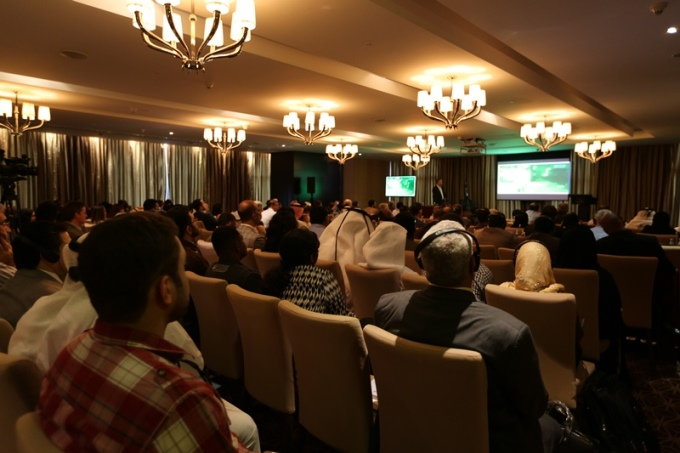
During a training session for the youth organized by the Al Jazeera Training and Development Center, trainer Jasem Azzawi discussed the importance of government spokespersons in terms of their agility and ability to persuade. The sessions addressed the skills needed to engage with the media and the art of dialogue. A large number of youth attended the session, and many of them enacted the parts of foreign ministers and official spokesmen for various governmental agencies.
A member of the audience played the role of the Egyptian foreign minister and tried to convince the audience of the current Egyptian government's position. He answered questions from reporters who grilled him about the future of the political situation in Egypt as it pertains to whether or not it will witness significant stability after the upcoming elections. He affirmed that Egypt will see political stability, and in turn achieve a stable economy given the resentment of the average Egyptian toward crises and instability, and his or her desperation for stability and security.
Another member of the audience played the role of the Jordanian foreign minister and had to respond to various accusations to her government regarding intervention in domestic Syrian affairs with the help of Pakistan. She denied the accusations vehemently, using the argument of King Abdullah II of Jordan and his government: that they cannot allow foreign officers to harm another Arab country while on Jordanian soil.
After these interventions, Azzawi completed his discussion about the skills needed to interact with the media, allowing participants to give their input.
During a training session for the youth organized by the Al Jazeera Training and Development Center, trainer Jasem Azzawi discussed the importance of government spokespersons in terms of their agility and ability to persuade. The sessions addressed the skills needed to engage with the media and the art of dialogue. A large number of youth attended the session, and many of them enacted the parts of foreign ministers and official spokesmen for various governmental agencies.
A member of the audience played the role of the Egyptian foreign minister and tried to convince the audience of the current Egyptian government's position. He answered questions from reporters who grilled him about the future of the political situation in Egypt as it pertains to whether or not it will witness significant stability after the upcoming elections. He affirmed that Egypt will see political stability, and in turn achieve a stable economy given the resentment of the average Egyptian toward crises and instability, and his or her desperation for stability and security.
Another member of the audience played the role of the Jordanian foreign minister and had to respond to various accusations to her government regarding intervention in domestic Syrian affairs with the help of Pakistan. She denied the accusations vehemently, using the argument of King Abdullah II of Jordan and his government: that they cannot allow foreign officers to harm another Arab country while on Jordanian soil.
After these interventions, Azzawi completed his discussion about the skills needed to interact with the media, allowing participants to give their input.

